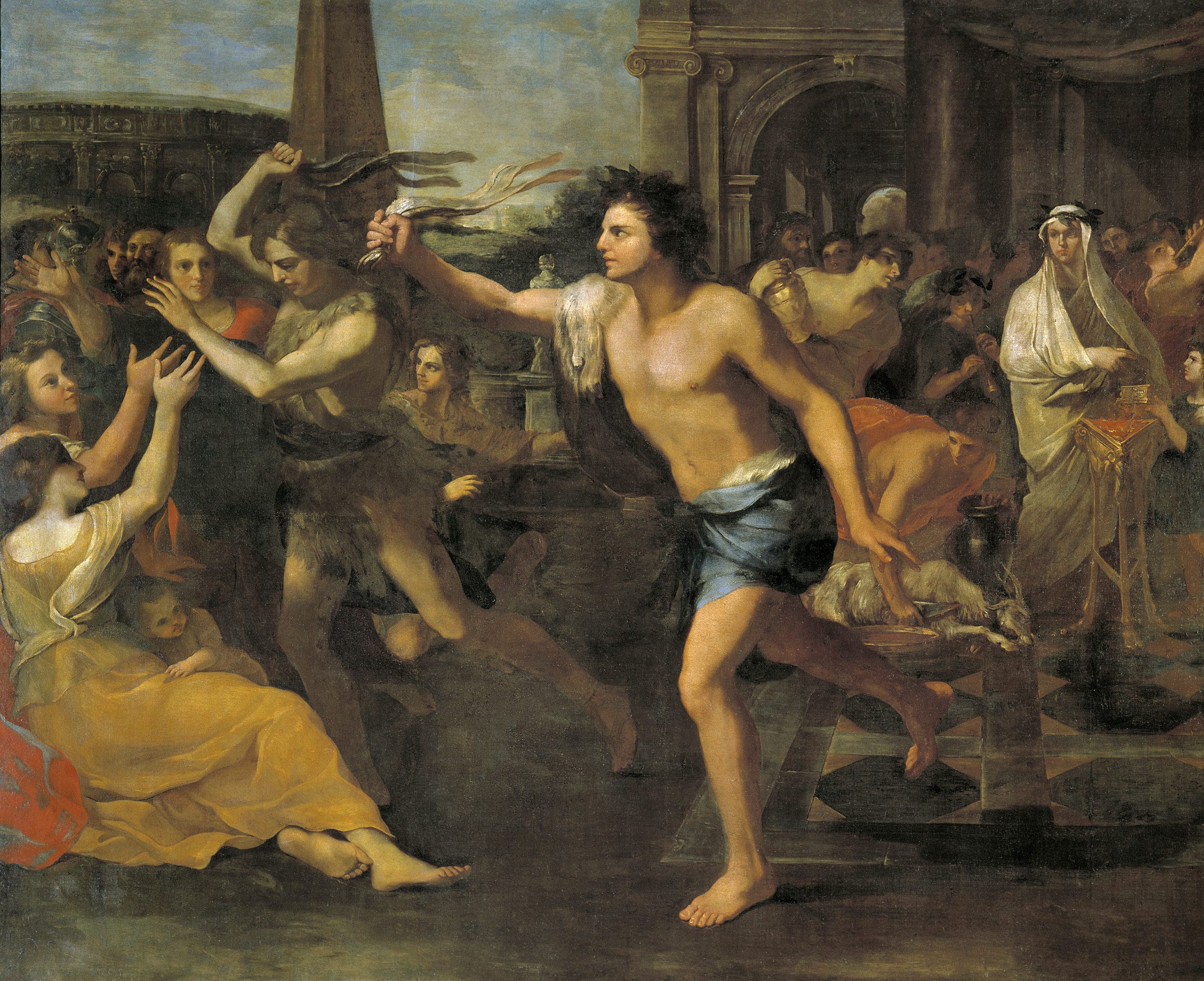VALENTINE AND CUPID: JUST WHO ARE THEY?
First love, puppy love, great love, unconditional love: many people will smile at the ideas evoked by these words. While it’s best to show love every day to those dear to us, February 14 is decreed to be the day for lovers and a synonym for romanticism and gifts. But why this particular date, and who exactly is Saint Valentine?
A FEAST DAY THAT’S BEEN TRANSFORMED (FORTUNATELY)
Historians are not unanimous on this subject. On the other hand, some agree that the origin of Valentine’s Day can be traced to the Lupercalia, celebrated in ancient Rome from February 13 to 15, in honour of Lupercus, god of fertility. The Luperci, priests of Faunus, sacrificed a billy-goat in the cave in which, legend has it, a she-wolf had suckled Romulus and Remus, the founders of Rome.
The Luperci then ran through the streets of Rome, whipping women with the strips of the poor goat’s hide, in a gesture of purification which was intended to make the women fertile.
THE HERITAGE OF VALENTINE
According to some historians, the name Valentine could refer to at least seven saints bearing that name. But the most likely seems to be the priest Valentinus de Terni who secretly married young people in spite of the ban by Emperor Claudius Gothicus, who required that his soldiers remain unmarried.
During his incarceration, he fell in love with the blind daughter of the jailer; he wrote her a message signed “Your Valentine” before being put to death. As regards his martyrdom, he was beaten and executed on February 14, 269.
In 494, Pope Gelasius I decided to abolish Lupercalia and to honour the memory of Valentine by declaring him the patron saint of lovers. He decreed that February 14 would be the day of the year to celebrate Saint Valentine.
But it was really in the 17th century that Valentine became popular. William Shakespeare, in Hamlet, has Ophelia sing:
Tomorrow is Saint Valentine’s day.
All in the morning betime,
And I a maid at your window,
To be your Valentine.
Then up he rose and donned his clo’es
And dupped the chamber door,
Let in the maid, that out a maid,
Never departed more.
CUTE LITTLE CUPID
In Roman mythology, Cupid (from the Latin cupido, desire) is the equivalent of Eros, the Greek god of love. He is the devoted son of Venus, goddess of love and beauty. Wounded by his own arrows, Cupid falls in love with Psyche, banished by her mother, who is envious of her incredible beauty.
Armed with a bow and a quiver full of arrows, he is often represented as a child, sometimes with his eyes blindfolded to symbolize the blindness of love.
Be careful! If Cupid’s arrow hits you full in the heart, you will fall under the spell of the first person you meet
Emmanuelle Virgili44 Posts
Du lundi au vendredi, Emmanuelle Virgili œuvre dans le milieu de l’éducation. Le soir et les fins de semaine, elle se transforme en journaliste et part en quête de reportages. C’est un peu par hasard qu’elle a commencé ce métier et depuis, Emmanuelle n’en démord plus. Elle contribue avec passion au contenu de nos pages depuis septembre 2017. / From Monday to Friday, Emmanuelle Virgili works in the education sector. Evenings and weekends, she becomes a journalist and heads out on assignments. Her start in the business happened more or less by chance and since then, she hasn’t budged. She has been a passionate content contributor since September 2017.







0 Comments